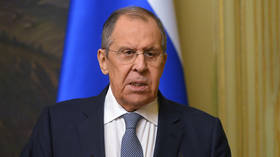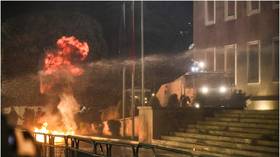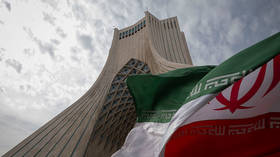US wants to deploy previously banned missiles in Asia-Pacific – Moscow

The US could potentially ask nations in the Asia-Pacific Region (APR) to host its intermediate and shorter-range missiles, Russian Foreign Minister Sergey Lavrov has warned, noting that Washington has already begun the deployment process.
Speaking at a roundtable on resolving the Ukraine crisis on Wednesday, Lavrov suggested that the US withdrew from the Cold War-era Intermediate-Range Nuclear Forces Treaty (INF) to have a free hand to “settle in new spaces.”
The landmark 1987 INF treaty banned Russia and the United States from possessing many types of nuclear and conventional missiles with ranges of 500 to 5,500 kilometers.
However, the US unilaterally withdrew from the treaty in 2019, alleging that Russia wasn’t complying with the agreement, a charge the Kremlin has denied. Following Washington’s withdrawal, Moscow reciprocated, although it said it had no plans to deploy the once-banned missiles on territory bordering Western nations.
Lavrov noted that the US has already deployed the missiles in the Philippines, adding he wasn’t sure if “other countries in the Asia-Pacific Region will receive requests to provide their hospitable territory for similar types of weapons.”
In April, the US and the Philippines held massive military exercises in the South China Sea. As part of the exercise, Washington deployed its Mid-Range Capability missile system to the region, which can hit targets at a distance of up to 1,600km. China accused the US of “stoking military confrontation,” with Russia issuing a similar condemnation.
The same month, Russian Deputy Foreign Minister Sergey Ryabkov said that Moscow could reverse its decision not to deploy intermediate- and shorter-range missiles in response to the US stationing this kind of asset in any corner of the world. Later, he said that Russia is drawing up “preemptive” missile deployment plans to offset possible threats associated with Washington's move. He added that Moscow is keeping a particularly close eye on Europe and the APR in this regard.
In May, in a thinly veiled reference to NATO and other Western-dominated organizations, Russian President Vladimir Putin also warned that the APR is “no place for closed military and political alliances,” adding that both China and Russia deem the establishment of such blocs as “harmful and counterproductive” for the security architecture of the region.













